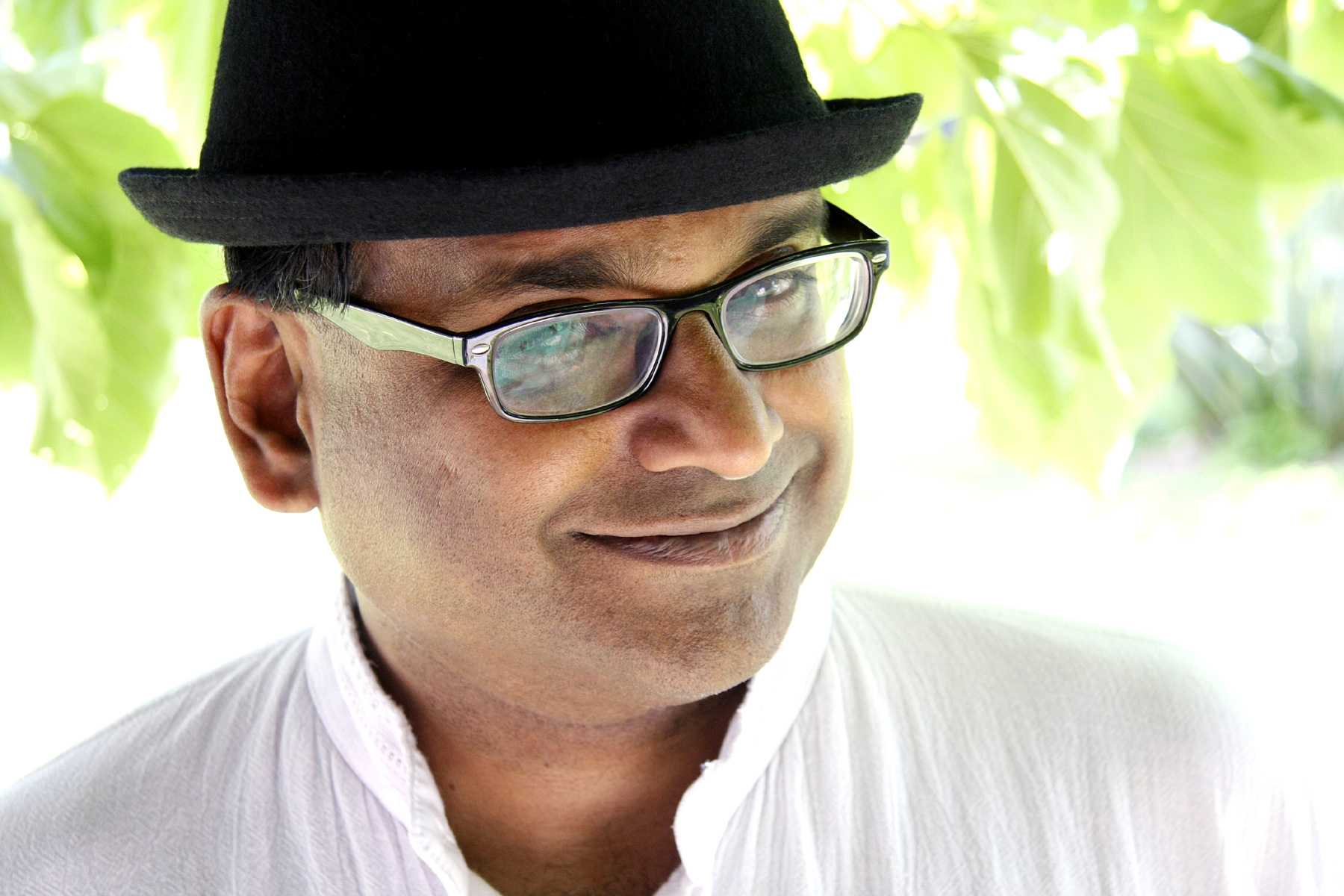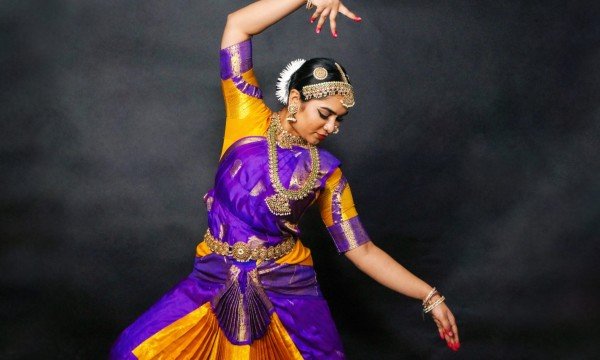
It is hard to imagine anyone fitting the definition of cosmopolitan more fully than poet, essayist, musician and diplomat, Indran Amirthanayagam. Born in what was then Ceylon, he grew up in London and Hawai’i, and served as an American diplomat in Haiti before taking up his current post in the State Department in Washington. Amirthanayagam, who writes poetry in five languages, has published the collections ‘The Splintered Face: Tsunami Poems’, ‘Ceylon R.I.P.’, ‘The Elephants of Reckoning,’ and most recently, ‘Uncivil War’ in English. I caught up with him recently on his return from Chile, to discuss his forthcoming visit to Toronto, and thought it a good time to learn a little more about the man behind the prolific pen.
Nedra Rodrigo: Indran, you are such a globetrotter! What were you doing in Chile? Can you tell me a little about your trip?
Indran Amirthanayagam: I was in Chile for the fifth time, and the first without the late Nicanor Parra. The country fascinates me, not least of which for its celebration of poetry and poets. Two Nobel Prize winners, Pablo Neruda and Gabriela Mistral, hail from the long, thin country at the bottom of South America, where curiously one can find Ceylon tea in all the supermarkets. And one can find British customs as well. I think of Nicanor Parra's poem “Preguntas a la Hora del Té” (Questions at Tea time). And I think of Neruda, the only Chilean on the island of Ceylon in the mid 1920s. He must have been responsible for shipping tea then to Chile. Clearly, his diplomacy has left its mark along with the 3,000 pages of poetry.
N.R.: Speaking of poet-diplomats, Indran, your own style of English poetry is very modernist, and certainly “Uncivil War” seems to draw inspiration from some of the English wartime poets (Rupert Brooke, Sitwell and others come to mind), as well as the socially conscious Latin American poets (Federico Garcia Lorca, and Neruda too). Are there any particular poets you would describe as having influenced your work?
I. A.: I write in free, musical verse. I love rhymes, off rhymes, assonance, and alliteration. I want my verses to trot off the tongue and dance in the mind and ears of the reader. Modernist, yes, in the sense that all poetry today owes a debt to the modernists in English poetry, Pound, Eliot, Williams...but my poems also spring from the surrealists...drawing inspiration from painting and music as well as literature. So [artists] Magritte and Duchamp (The Bride Stripped Bare by the Bachelors, Even) are also in my mind cheering along my verses.
Of the war poets, I have read and re-read Wilfred Owen. His “Dulce et Decorum Est” and “Anthem for Doomed Youth” are moving, powerful poems that inspire my own elegies for the war dead in Uncivil War. I am a voracious reader too of Nazim Hikmet, Neruda, Fernando Pessoa, and William Butler Yeats. These poets, along with Eliot, have been important to my poetic formation. I should include Sylvia Plath as one of my key poets, especially the rhythms of “Daddy, Daddy” and “Lady Lazarus.” Rosario Castellanos of Mexico stirred my Spanish poems. And in French I love Blaise Cendrars.
N.R: I’m trying to imagine a young Tamil man telling his parents that he wants to be a poet, how was your work received by your family?
I.A: My father encouraged my poetry, being a poet himself and a fine literary critic. Although poetry is certainly not the profession of choice among Tamil families...my choice could not be denied given my father's choice and also that of an uncle on my mother’s side, the poet Meary James Thurairajah Tambimuttu, who founded Poetry London.
N.R.: Undeniably impressive forebears! Now, you've travelled extensively and lived in other parts of the world. How has being a diasporic person influenced your work/perspective? Do you even think of yourself as diasporic?
I.A.: When I started to write poetry at 14, I found in the art a way to reconcile adolescent dilemmas and also the anxieties that spring from exile, uprooting, living far from home. My extensive travelling has resulted from the choice of diplomacy but earlier the basic realization that I had no country (Ceylon was wiped off the books) and that as Tamils some of us had taken up arms and were fighting for an independent country. But I wished to raise my pen in battle...and raise it as a white flag as well...The war corrupted the old idea of fair play. In Sri Lanka's uncivil conflict, rebels surrendering with white flags raised were mowed down. In this particularly nasty fight the newscaster of rebel television [Isaippriya] was stripped, raped and then slaughtered. I cite here only two examples of the many terrible disappearances of that war...both in the North, among Tamils, and in the South…where civilians were killed by suicide bombers, and whose soldiers lost their lives in waging the war against their fellow citizens.
This war made me reflect on citizenship and its requirements. And loyalty.
You ask about being a member of the diaspora...well I am a Tamil living away from the geographic and psychological space of Eelam. I am a former Sri Lankan citizen living with my adopted parent, the United States. I belong now to more than one geographic space thanks to my residences in many places on Earth. So I am a citizen of the planet now...and I have friends on every continent. But my ideas are the same. I want to live and think and love as a free man.
N.R.: You write in Spanish, French, Portuguese and Haitian Creole as well; which language would you say you are most at home in, now? Have you ever written in Tamil? Do you plan to?
I.A.: I think and dream and breathe in English, Spanish, French, Haitian Creole and Portuguese, no longer Tamil – which I spoke last as a child of eight.
Having access to these languages keeps me fresh and limber. I may become tired in one but wake up refreshed in another. At times the pace is frenetic...and the sacrifice...but I try my best to devote time to loved ones, my children, while drinking inspiration from the fountains of my different muses.
I think of each language as a muse, a goddess, and each one requires her offering of fresh fruit, flowers, and metaphors.
N.R.: And each requiring her own sacrifices, no doubt. Do you travel to Sri Lanka at all? What is that experience like for you?
I.A.: I do not travel often to Sri Lanka but each trip is a reckoning, a settling of accounts with that bloody paradise. I left first as a boy of eight, to London where I lived for six years before travelling to Honolulu in the Hawai’ian Islands...where I happened to study with a future president, Barack Obama.
In Hawai’i, surrounded by coconut trees, and mangoes, and beside the glorious surf I realized how much I missed Sri Lanka...the original island full of these pleasures... and in that sense of loss and longing, while marooned in the middle of the Pacific Ocean, in a period before internet, I found solace and company in poetry.
N.R.: Is there any sense of a shared identity, or characteristics you feel you share with other Tamil peoples?
I.A.: I am a Tamil, from Ceylon. I am a poet in English, Spanish, French, Portuguese and Haitian Creole. I am a man, a Catholic, a father, a lover. I believe in the pursuit of basic rights for everybody. I am fascinated by human and animal and planetary history. I love stories of kingdoms and kings but advocate for democracies and the chance to rise up from any station and assume any office. These are my identities. And I have lived in Canada as well, and have Canadian cousins, so I claim right of passage in Canada too...I do not believe essentially in borders.
N.R.: Thank you for sharing this time with us, Indran. Before we leave, can you tell us what we can look forward to from you in the near future?
I. A.: I learned in Haiti from Franketienne that one must break down the barriers between disciplines. He is a painter, poet, singer, novelist and playwright. I am now a singer. My first album, recorded with sharp Haitian musicians, is called “Rankont Dout.” You can find it in the music stores. I am collaborating with Evans Cadet on some new recordings. As a translator, I am working on bringing a number of Spanish language poets into English. I have far too many projects than time. And I want to relearn Tamil as well, to become whole again. But I realize that an identity can also exclude. And I do not want to shut the door on any wind or voice or language. So I advocate for a new tolerance, a celebration of diversity, free passage for ideas, people, goods.
Indran Amirthanayagam will be reading from his collection “Uncivil War” and speaking on the poetry of Tamil poet P. Ahilan at the launch of “Then There Were No Witnesses” at the Markham Civic Centre on the 17th of June 2018.
His books may be purchased at https://www.amazon.com/Indran-Amirthanayagam/e/B001JOUA38
Follow his blog at http://indranamirthanayagam.blogspot.com/
Want to connect with him directly? Message him here: https://tamilculture.com/user/indran-amirthanayagam

























